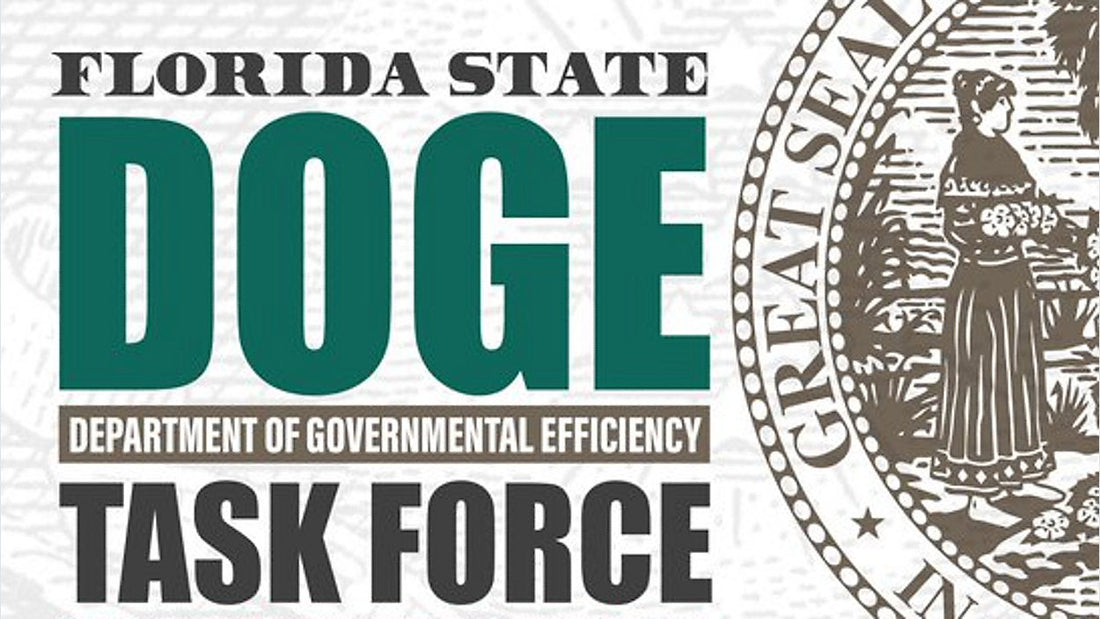
Florida DOGE Auditors Target Pinellas: Two-Day Deep Dive Set for August
Share
Florida’s Department of Government Efficiency, better known as DOGE, is preparing to conduct a sweeping on-site audit of Pinellas County’s finances and operations. The review, scheduled for August 7th–8th 2025, comes after county commissioners voted in April to invite state oversight—an unprecedented move that shifts much of the fiscal spotlight onto Pinellas at a time when local spending is under intense public scrutiny.
Why Pinellas Is Under Review

The decision to allow DOGE in stems from rising concerns over the county’s financial growth. While property tax rates have technically dropped, climbing property values have pushed total revenues up by roughly $220 million since 2020. Meanwhile, general fund expenditures have ballooned by an estimated $330 million, a 43% increase in just five years.
Supporters of the audit argue that this surge in spending justifies a closer look from Tallahassee. Critics, however, see the move as a political ploy to exert control over local governments that lean more progressive.
What the Audit Will Look Like
DOGE’s team will spend two full days embedded within county offices, combing through records, interviewing staff, and reviewing operational procedures. The state has demanded nearly 80 separate categories of documentation, ranging from every contract over $10,000 to detailed compensation records going back to 2019.
Perhaps most controversially, the request also zeroes in on diversity, equity, and inclusion (DEI) initiatives, as well as climate-related programs like electric vehicle infrastructure, solar incentives, and LEED certification efforts.
The scale of the audit is unprecedented for Pinellas. County staff will be expected to make all files accessible, and the state has signaled that noncompliance could invite further escalation.
Local Leaders Split on Oversight
Reactions from county commissioners highlight the divide over this decision. Commissioner Vince Nowicki has welcomed the audit, framing it as an opportunity to identify wasteful spending and expose inefficiencies in areas like salary growth and outdated memberships.
Others have voiced cautious support, acknowledging the value of transparency but questioning whether the audit’s scope overreaches into policy areas unrelated to basic fiscal responsibility.
Notably, Commissioner Rene Flowers cast the lone vote against allowing DOGE into Pinellas. Flowers has warned that the audit may become more about political theater than meaningful reform—especially given similar controversies in Gainesville and Broward, where protests erupted over DOGE’s tactics.
The Bigger Statewide Push
This audit is part of a broader initiative led by Governor Ron DeSantis and CFO Blaise Ingoglia to tighten oversight of local governments across Florida. Pinellas joins a growing list of counties—including Broward, Jacksonville, Hillsborough, and Orange—that have either voluntarily or reluctantly opened their books to DOGE inspectors.
These reviews come as state leaders prepare for potential property tax reform debates in 2026, positioning DOGE’s findings as key evidence in that upcoming battle.

Why It’s Stirring Controversy
The controversy surrounding DOGE’s arrival hinges on its aggressive scope. While billed as a fiscal accountability measure, many of the document requests delve into DEI programs, nonprofit grants, and green energy efforts—areas critics say are being politically targeted.
Gainesville, for example, faced similar scrutiny earlier this summer and saw significant public pushback over what residents described as state overreach. Supporters counter that these audits are about protecting taxpayers and uncovering inefficiencies, not about targeting ideology.
The truth likely lies somewhere in between, but one thing is clear: Pinellas is now part of a statewide showdown over who gets the final say in how local dollars are spent.
What Comes Next
DOGE inspectors arrive on August 7th and will conduct their review through August 8th. Afterward, findings will be compiled into a public report that could shape both local budgets and statewide policy proposals for years to come.
Pinellas residents should brace for potentially sweeping changes—either in the form of new transparency measures or in tighter state controls over county programs.
The Takeaway
Pinellas County’s willingness to invite state auditors marks a pivotal moment in Florida’s tug-of-war between local autonomy and state oversight. Whether the audit leads to meaningful reform or fuels further controversy remains to be seen, but its outcome will undoubtedly influence how other counties navigate their own financial futures.
